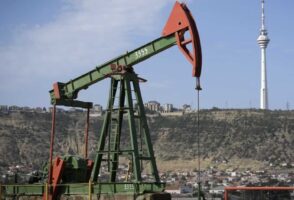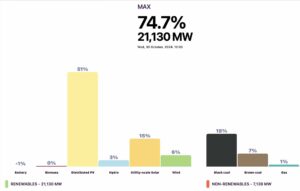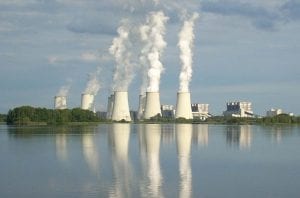At its Annual General Meeting on 4 May, Santos will be subject to a vote on a shareholder resolution that seeks improved disclosure of climate risks.
Market Forces coordinated the resolution on behalf of over one hundred individual shareholders, including members of those northern New South Wales communities where Santos plans to expand its controversial coal seam gas operations.
Santos has attempted to brush it aside, but the resolution is about more than whether one company is managing its risk, it’s a line-in-the-sand opportunity for investors to demonstrate whether they are serious on climate risk.
And first indications are that they are, with Santos facing something of a shareholder revolt.
The shareholder resolution is modeled on the recommendations of the Financial Stability Board’s Task Force on Climate-related Financial Disclosures (TCFD).
The TCFD is not short of credibility; it is chaired by Michael Bloomberg, and has representatives from both industry and the investment community – from BHP and Unilever to Blackrock and JP Morgan. The recommendations were put to public consultation earlier this year, and are expected to be formally adopted by G20 countries later this year.
Why is disclosure so important? Until such time as all energy companies make comparable climate risk disclosures, there remains an element of guesswork for investors. Sure, cost of production is a decent start, but it doesn’t tell the whole story. How suitable are the directors to enable the transition? How are capital expenditure decisions informed? How well does the company understand the issues? Put simply, will the company survive in a 2°C economy?
Since the shareholder resolution was included in Santos’ notice of meeting on 3 April, the company has been attempting to placate those institutional investors demanding greater disclosure. This came to a head last week when the company published a ‘Statement on climate change disclosure’. The statement, however, provides no new climate-related risk information to investors and very little by way of commitments to disclose additional information in the future.
Santos claims to use “scenario analysis to consider a range of future energy mixes and climate policies” and that “these scenarios are discussed annually with the Santos Board”. However, the results of these analyses are not disclosed to shareholders, one of the key TCFD recommendations.
Santos also claims to assess the risks and opportunities arising from climate change and incorporates these into its business strategy. However, these are only made available to shareholders in its submission to the CDP (formerly Carbon Disclosure Project), as the company no longer publishes a sustainability report. More importantly, the company discloses only limited analysis of risks; technological advances are not discussed at all. That’s right, no mention of how solar, wind and batteries will affect gas demand in the future.
Over half of Santos’ statement is dedicated to explaining the ‘gas as a transition fuel’ argument – one that even Shell and BHP were undermining in a report yesterday, which said gas consumption could only increase by 2% by 2040 as coal and oil use plummets to stay below two degrees of warming.
Arguably, the most important part of the document is the final section: Santos’ ongoing disclosure commitments. The company has committed to “review the [TCFD recommendations] for future reporting”, but it has not committed to implement them.
This is where the rubber meets the road – just how important are the TCFD recommendations to investors? How quickly will they be implemented? Will companies like Santos be permitted to simply “review” them, rather than commit to their implementation? How many more years will investors spend negotiating with energy companies for improved climate risk disclosure?
Santos has also committed to introducing a “Climate Change report” – without any parameters. There is no reason to suggest that this report will contain any new information, nor does the company commit to a timeframe for its release.
Santos’ statement on climate change disclosure is designed to persuade institutional investors to vote against the shareholder resolution seeking greater climate risk disclosure. What it reveals, however, is an organization prepared to do only the bare minimum to placate the investment community.
The question now is whether investors that had grown frustrated at Santos’ obstinance to date will feel the placebo of this half-hearted offering at the eleventh-hour.
Dan Gocher is an analyst and campaigner with Market Forces.








